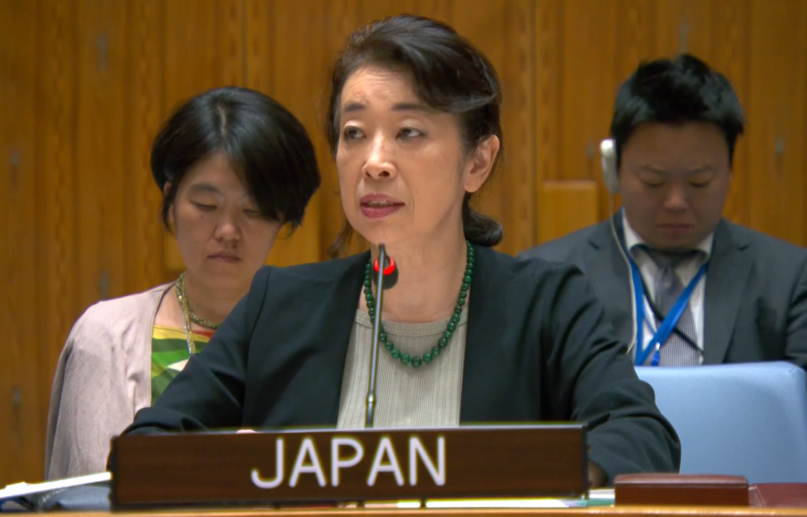Statement by H.E. Ambassador SHINO Mitsuko, Deputy Permanent Representative of Japan to the United Nations, at the United Nations Security Council Briefing, Agenda item “Peace Consolidation in West Africa”
2023/7/25

(As delivered)
Thank you, Mr. President.
I welcome Mr. Leonardo Simão in his capacity as SRSG for West Africa and the Sahel and thank him and His Excellency Dr. Touray, President of ECOWAS, for their insightful briefings. I also thank PBC for their written advice.
Japan highly appreciates the work of UNOWAS, its active engagement at the regional, sub-regional, and national levels to support democratic processes, and its continued coordination with UNOCA, recognizing that the challenges facing West and Central Africa are interconnected.
Mr. President,
Today, I want to touch upon two pressing issues the region face.
Firstly, the restoration and maintenance of legitimate and democratic governance is essential. We welcome the holding of a number of elections this year in the region and look forward to the forthcoming elections being held in a peaceful, inclusive and transparent manner.
While most of the elections this year have been conducted peacefully, not all have been without controversy. Any truly inclusive democratic process cannot have opposition candidates jailed or barred from running. Incendiary rhetoric and accusations must be avoided by all participants and appropriate measures need to be taken against misinformation and disinformation.
Furthermore, Japan reiterates the importance of a return to constitutional order. Japan calls on Mali to continue to make every effort towards holding elections as agreed with ECOWAS and encourages UNOWAS and the UN Country Team to assist Mali. In this context, Japan welcomes the contribution of regional partners. We also hope to see positive developments in the political transitions in Guinea and Burkina Faso. Security cannot be achieved without accountable and inclusive governance.
This leads me to my second point. The security landscape across the Sahel has continued to deteriorate, particularly in Mali and Burkina Faso. In this regard, it is regrettable that MINUSMA has to withdraw after a decade of its dedicated work, despite the many challenges Mali and the region continue to face. We stress the need to respect human rights in all security operations and also urge the Mali transitional authorities to coordinate with their neighbours and with regional partners to avoid a security vacuum. A collective, holistic, and transnational security approach is necessary to combat against violent extremists and terrorists who operate across borders. In addition, we should not forget that the deterioration of security situation in the Sahel is giving a negative impact on neighbouring countries including several coastal countries of the Gulf of Guinea.
Continued insecurity has worsened already severe humanitarian needs, with widespread food insecurity, displacement and school closures, as we just heard from briefers. On top of this, the effects of environmental degradation and climate change are deeply worrying.
Mr. President,
In tackling these challenges and ensuring long-term peace and stability, people must be placed at the centre and given a sense of ownership, and governments must build strong and robust institutions to provide for their wellbeing. Recognizing the importance of human security, Japan has long provided development and institution building assistance to the region. I will conclude by reiterating our commitment to continue to work with bilateral, regional, and international stakeholders for a stable and prosperous West Africa and the Sahel.
I thank you.
